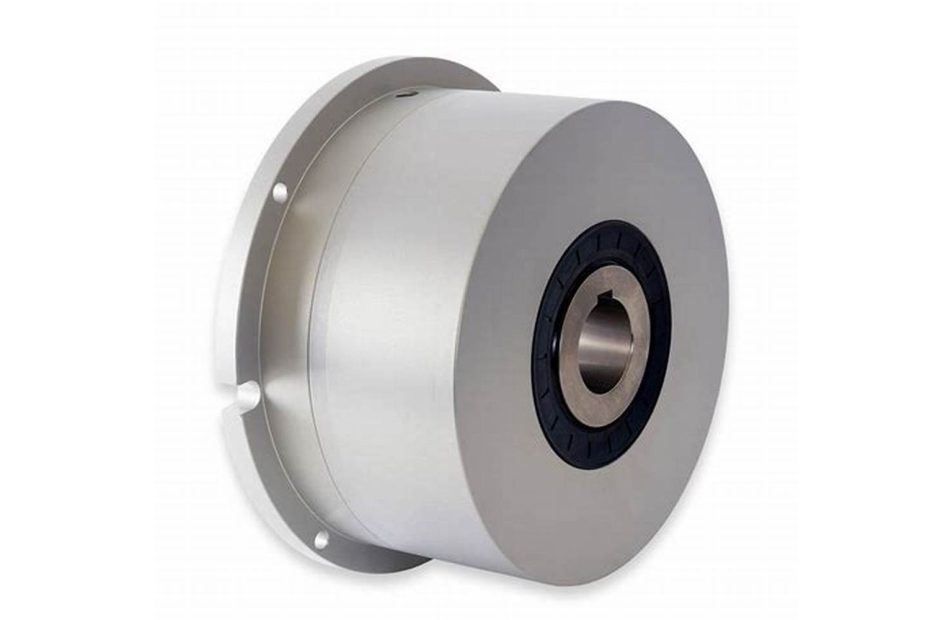Magnetic particle clutches play a pivotal role in industrial applications, precisely controlling torque transmission. However, when temperatures soar unexpectedly, it raises concerns about efficiency, longevity, and potential malfunctions. This article delves into the factors causing elevated temperatures in magnetic particle clutches and explores solutions to mitigate this issue.
Magnetic particle clutches operate on the principle of transmitting torque through the engagement and disengagement of magnetic particles within the clutch assembly. The efficiency of this process is contingent upon maintaining optimal temperatures within the clutch unit.
The Anatomy of Magnetic Particle Clutch
- Input and Output Shafts:Transmit mechanical power to and from the clutch.
- Field Coil:Generates a magnetic field when energized.
- Magnetic Particles:Suspended between input and output members, forming the torque-transmitting medium.
- Cooling System:Facilitates heat dissipation to maintain temperature equilibrium.
Top 5 Causes And Solutions Of High Temperatures In Magnetic Particle Clutches
| Cause | Solution |
|---|---|
| Overloading the Clutch | Reduce the load on the clutch by adjusting operating parameters. |
| Inadequate Cooling | Enhance cooling systems or introduce external cooling methods. |
| Poor Lubrication | Ensure proper lubrication of bearings and friction surfaces. |
| Faulty Field Coil | Inspect and replace damaged or malfunctioning field coils. |
| Excessive Engagement Time | Optimize engagement times to prevent prolonged magnetic particle contact. |
Overloading the Magnetic Particle Clutch
Overloading, or exceeding the clutch’s specified torque capacity, is a common culprit behind elevated temperatures. This can result from increased operational demands or improper adjustments.
Symptoms Of Overloading:
- Elevated temperatures beyond the clutch’s design limits.
- Increased wear on friction surfaces.
Solution:
- Review and adjust operational parameters to align with the clutch’s torque rating.
- Consider upgrading to a higher capacity clutch if the application demands it.
Inadequate Cooling
Insufficient cooling is a prevalent issue contributing to high temperatures in magnetic particle clutches.
Cooling System Inspection:
- Check for clogged or restricted cooling passages.
- Ensure the cooling fan or other cooling mechanisms are functioning optimally.
Enhancing Cooling:
- Introduce external cooling methods, such as air or liquid cooling, for applications with elevated heat generation.
Poor Lubrication Of Magnetic Particle Clutch
Adequate lubrication is essential for reducing friction and preventing excessive heat buildup within the clutch assembly.
Lubrication Checks:
- Regularly inspect and replace lubricants to maintain optimal viscosity.
- Ensure bearings and friction surfaces receive sufficient lubrication.
Best Practices:
- Follow manufacturer-recommended lubrication schedules.
- Use high-quality lubricants compatible with the clutch materials.

Faulty Field Coil Of Magnetic Particle Clutch
The field coil generates the magnetic field essential for clutch engagement. Any malfunction can lead to irregularities in the engagement process, resulting in elevated temperatures.
Field Coil Inspection:
- Check for signs of wear, damage, or electrical malfunctions.
- Measure coil resistance to identify potential issues.
Replacement and Maintenance:
- Replace damaged or faulty field coils promptly.
- Implement routine maintenance to detect and address potential coil issues early.
Excessive Engagement Time Of Magnetic Particle Clutch
Prolonged engagement of magnetic particles can lead to increased friction and temperature within the clutch.
Adjusting Engagement Times:
- Optimize control systems to minimize engagement durations.
- Implement sensors and feedback mechanisms to monitor and control engagement times.
Systematic Monitoring:
- Incorporate real-time monitoring systems to detect anomalies in engagement behavior.
Conclusion
Understanding the causes of high temperatures in magnetic particle clutches is imperative for ensuring their optimal performance and longevity. By addressing issues related to overloading, inadequate cooling, poor lubrication, faulty field coils, and excessive engagement times, industries can enhance the reliability and efficiency of these critical components. Regular maintenance, adherence to operating parameters, and proactive troubleshooting are key elements in preserving the integrity of magnetic particle clutches, thereby contributing to the seamless functioning of various industrial applications.
